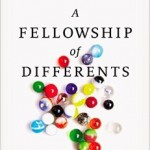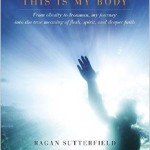 Sometimes when I’m reading a good book, I come to a particular sentence or phrase that seems to have around it an aura of origin-ality. I can’t help but wonder if this line might have sparked the creative fire that ended up as the book in my hands. I’m struggling this morning to come up with an example from my recent reading. But I can give a ridiculous example from my own writing life.
Sometimes when I’m reading a good book, I come to a particular sentence or phrase that seems to have around it an aura of origin-ality. I can’t help but wonder if this line might have sparked the creative fire that ended up as the book in my hands. I’m struggling this morning to come up with an example from my recent reading. But I can give a ridiculous example from my own writing life.
The first piece of mine published in a newspaper as an adult was a humorous essay I wrote about Y2K for the Opinion page of the Omaha World-Herald. It was published in September 1999. The essay was not premeditated; I didn’t think I had anything to say on the subject of Y2K. Instead, the piece grew out of a misunderstood song lyric. The third verse of Beck’s “Tropicalia” goes like this:
You’re out of luck
You’re singing funeral songs
To the studs
They’re anabolic and bronze
They seem to strut
In their millennial fogs
‘Til they fall down and deflate
For the longest time, I misheard the phrase “millennial fogs” as “millennial thongs.” When I realized my mistake, I decided “millennial thongs” was too interesting to not be used somewhere, so I started constructing an essay around it. Near the middle of the piece, I imagined what my parents, my brothers, and I would be doing on December 31, 1999:
The five of us boys will be gathered around the Scrabble board tiling words like “apocalypse” and “cataclysm” for triple-word scores. Dad will be in the living room reading what could be the last paper (headline: “See You Tomorrow, We Hope”) or doing what could be his last crossword puzzle. Mom will be in the kitchen tidying up, declaring, “If the world as we know it ends today, there is no way I am going to enter the dark ages with a messy house.” It’ll get messy when the looters come anyway, I think to myself but of course do not dare say out loud.
The television will be on, but there will be little to choose from. The Family Channel will be running a Little House on the Prairie marathon. The Cooking Channel will be airing special programming like Fun with Dried Foods and The Joy of Cooking with Fire. Nickelodeon will air symbolic episodes of Bosom Buddies, while UPN and Lifetime, unaware that anything really noteworthy is going on, will be running its regularly scheduled programs. MTV is presenting its first annual “Rock the New Third World” Beach Blast featuring music by Cher and U2 and a thousand slightly inebriated co-eds running around Pismo Beach in their millennial thongs.
Ahem.
Last year, I re-read Gilead, a novel by Marilynne Robinson, and I read for the first time, Home, which is a companion novel to Gilead. Both novels are set in 1957 in the town of Gilead, Iowa. Gilead is written from the perspective of John Ames, an aging and ailing Congregationalist minister. It is in the form of a letter to his very young son. Home centers on the family of Robert Boughton, a retired Presbyterian minister who is Ames’s best friend. The two novels deal with many of the same events and themes. Specifically, they are about the way the lives of John Ames and the Boughton family are shaken when Rev. Boughton’s prodigal son, Jack, returns to Gilead after fleeing in disgrace twenty years earlier.
I think I heard Robinson say somewhere that Gilead started with Ames’s voice. And I think she said somewhere that she wrote Home because the characters in the Boughton family refused to go away. But reading Home – and here I am getting back to my point – I wondered if the novel was in part also a way for Robinson, an admirer of John Calvin, to explore, through the character of Jack Boughton, the more problematic aspects of the doctrine of predestination.
Then a couple days ago, I was reading Nathaniel Philbrick’s fun little book, Why Read Moby-Dick? Philbrick tells the story of when Herman Melville went to Liverpool to visit his friend and literary hero Nathaniel Hawthorne:
It was November, and the two friends went for a walk on the beach in the windy sunshine. They found a sheltered spot amid the dunes and sat down for a smoke. “Melville, as he always does, began to reason of Providence and futurity,” Hawthorne recorded in his journal, “and of everything that lies beyond human ken, and informed me that he had ‘pretty much made up his mind to be annihilated’; but still he does not seem to rest in that anticipation; and, I think, will never rest until he gets hold of a definite belief. It is strange how he persists – and has persisted ever since I knew him, and probably long before – in wandering to and fro over these deserts, as dismal and monotonous as the sand hills amid which we were sitting. He can neither believe, not be comfortable in his unbelief; and he is too honest and courageous not to try to do one or the other. If he were a religious man, he would be one of the most truly religious and reverential; he has a very high and noble nature, and better worth immortality than most of us.”
The last sentences of Hawthorne’s journal remind me so much of Jack Boughton that I can’t help but wonder if they served as some inspiration for Robinson. (Robinson studied 19th century American literature, and her first novel, Housekeeping, began as a series of prose exercises inspired by Melville, Thoreau, and Emily Dickinson.)
Speculating about the origin of a book or essay or poem is interesting to me both as a writer and reader. Speculation is all it can ever be, unless I have the chance to ask the author someday. Still, those moments are valuable reminders that most creative works don’t present themselves whole-cloth to the creator; they are the end result of a process that includes both inspiration and perspiration, the genesis of an idea as well as the perseverance, discipline, care, and craftsmanship to give that idea form.
What does all this have to do with Slow Church? Besides the obvious – that I’m starting to write another book – I am still considering some answers to this question. I wanted to post something here in the meantime because this has been on my mind. Do you have similar moments when you are reading, listening to music, etc.?












